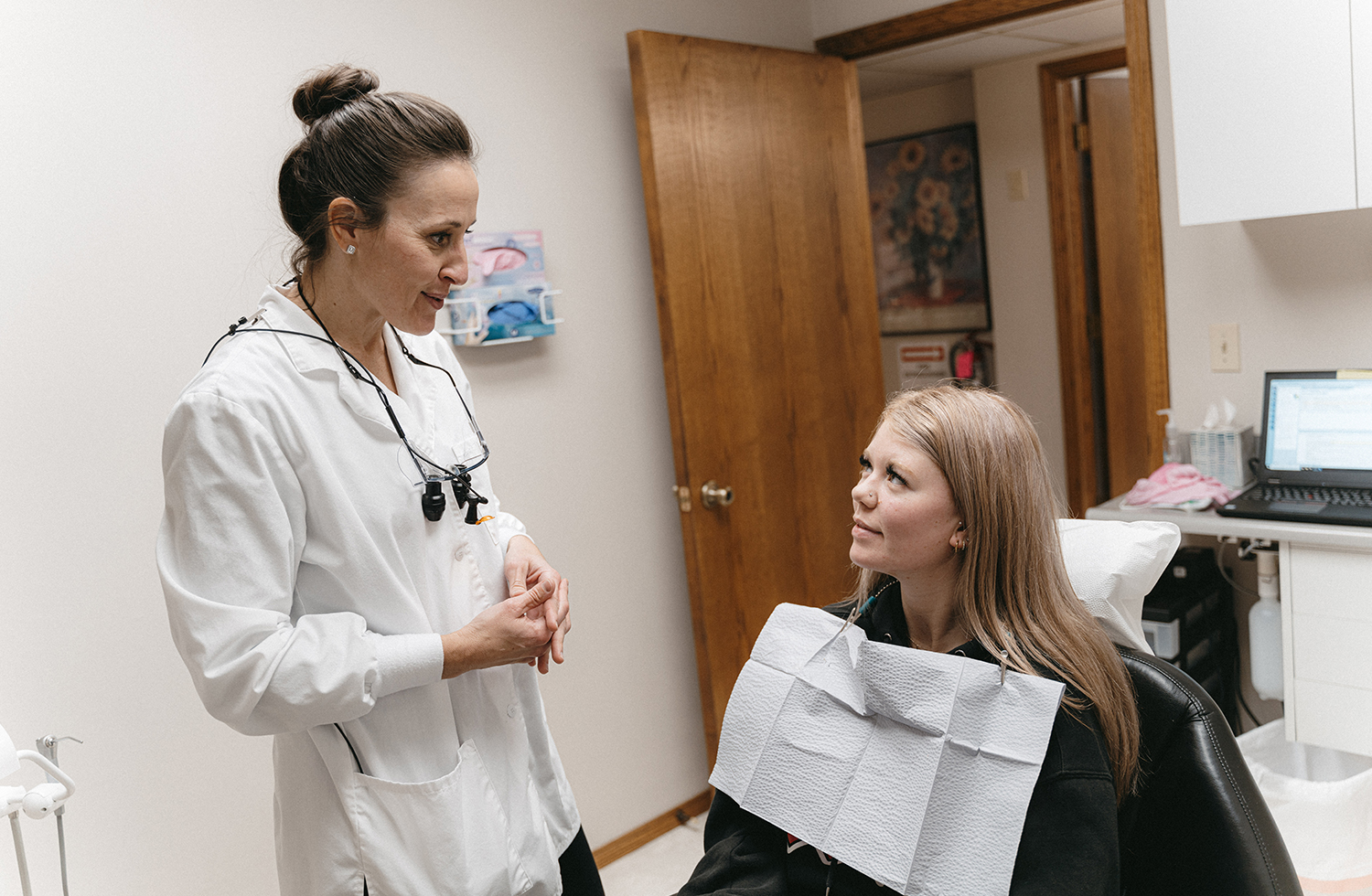
Dr. Reece conducts an occlusal analysis in Kearney, NE, to ensure all the parts of a patient’s bite works together. Occlusion refers to the alignment of teeth and the way the teeth meet when the lower jaw (mandible) and upper jaw (maxilla) come together. An analysis is done to identify the corrective measures that are necessary to balance the functional dynamics of occlusion.
As part of the analysis, Dr. Reece will ask you to bite down on a piece of special paper called Articulating Paper and ask you to move your teeth. This paper will leave colored marks on your teeth where they come together. Dr. Reece will use this information to determine if treatment is needed. If your teeth do not align properly, then you have a malocclusion and Dr. Reece will recommend a bite adjustment (or occlusal adjustment).
Dr. Reece can perform a bite adjustment as an in-office procedure. A bite adjustment procedure is quick and painless. It is done to correct minor interferences that prevent your teeth from coming together properly.
There are several things that can cause a misaligned bite causing your teeth to lose their shape, to shift, or to wear down, including:
You may need a bite adjustment if you are experiencing any of the following signs or symptoms:
A bite adjustment is done to correct minor interferences that prevent your teeth from coming together properly.
Occlusal Equilibration or occlusal adjustment is a dental procedure that involves selective adjusting of tooth surfaces to allow your lower teeth to contact your upper teeth evenly all the way around your mouth. This treatment is done to create a solid bite that prevents any further stress on individual teeth and reduces stress on the jaw muscles and jaw joints.
This a painless procedure and no shots are needed.
If you experiencing any symptoms of a misaligned bite, contact Advanced Dentistry of Kearney at (308) 237-1311 to schedule an occlusal analysis and bite adjustment with Dr. Reece.
Occlusal refers to the surface of the tooth that is used for chewing or grinding.
A healthy bite is important for proper eating, aesthetics, and disease prevention.
When your bite is off, a misaligned bite can exacerbate or lead to temporomandibular joint (TMJ) issues, such as
You may be able to tell if your bite is off if